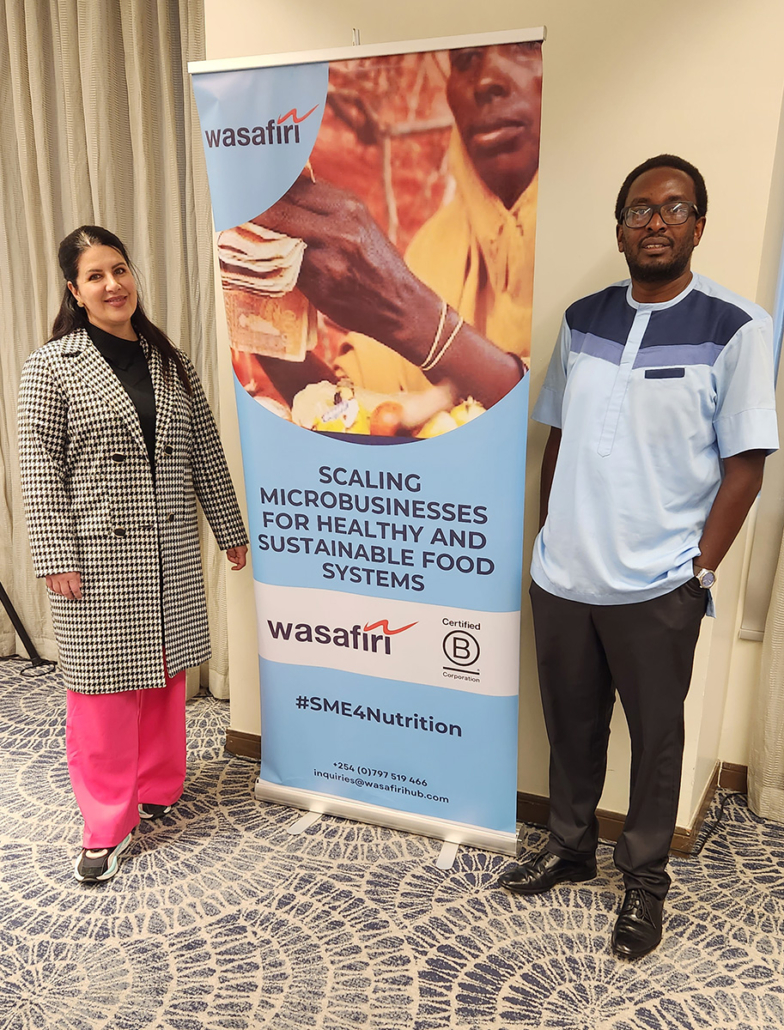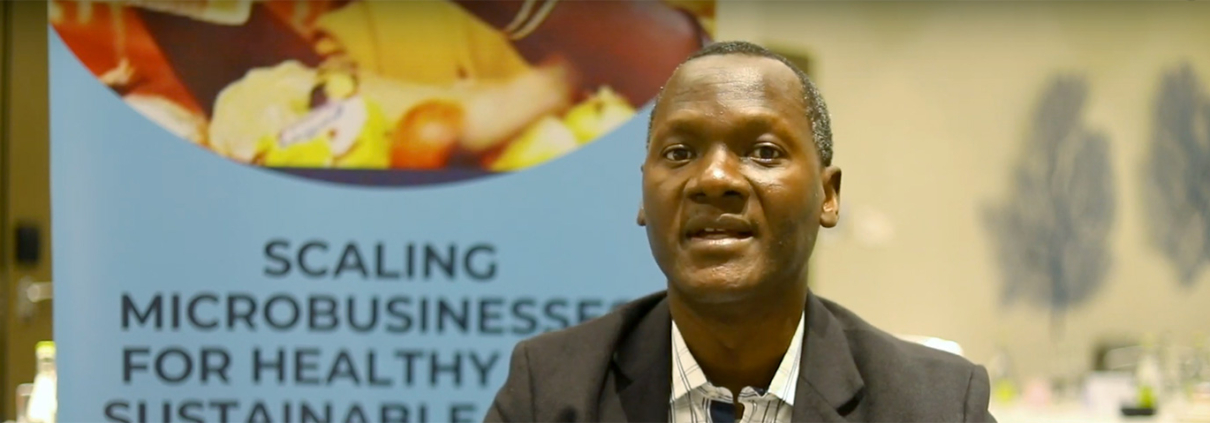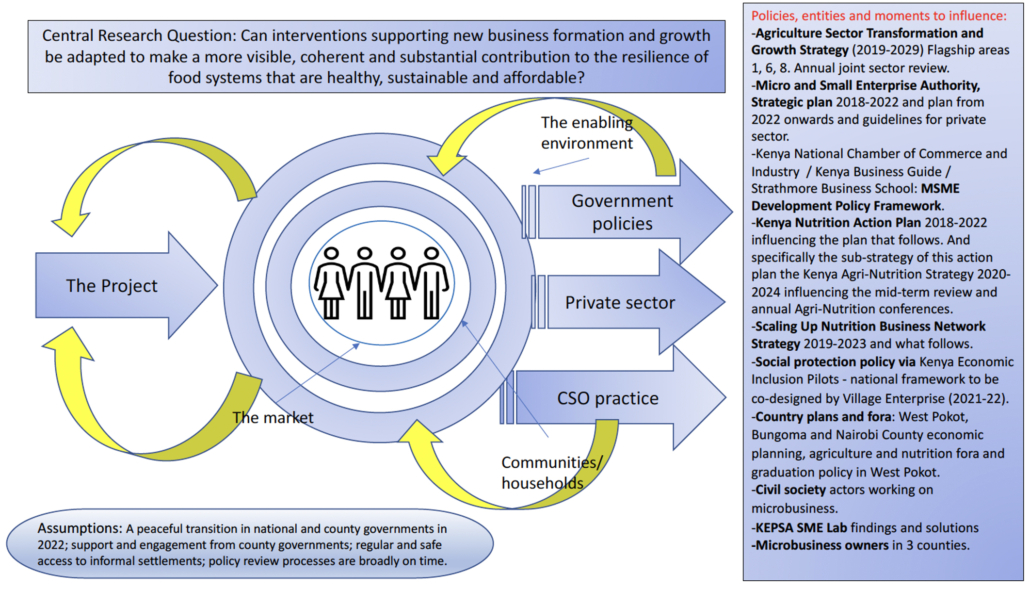From Dialogue to Action: The importance of diverse stakeholder voices in promoting healthy and sustainable foods
Latest posts
Share:
As global food systems face increasing challenges, stakeholders across the food value chain are realising their role in promoting healthy and sustainable diets.
Scaling Micro-businesses for Healthy and Sustainable Food Systems in Kenya (KenyaSME4Nutrition) was a two-year project funded by the International Development Research Centre (IDRC) and implemented by Wasafiri, Village Enterprise, and Shack Dwellers International (SDI).
The story of the Kenya SME4Nutrition project
While the food environment in Kenya is rapidly evolving with the expansion of formal retailing such as supermarkets, microbusinesses are the main channel through which most households in both urban and rural communities access their food.
The KenyaSME4Nutrition project aimed to show how microbusiness owners can be agents for catalysing agri-food systems towards healthy and sustainable foods, with a particular focus on extremely poor women in both rural and urban areas.
This project also sought to identify the conditions that can influence micro businesses to contribute to equitable food system transformation.
The research team examined incentives for businesses to change, the factors that influence demand, and how they are shaped by gender.
Scaling the impact of agri-food businesses is a complex problem, particularly in the context of promoting healthy and sustainable diets. Creating a platform for dialogue and collaboration between food businesses, local governments, policymakers, civil society, and other stakeholders is essential.
The project’s engagement pathway, depicted in Figure 1, broadly outlines the target stakeholders and policy opportunities. It was integrated into the project design to offer more detailed information about the target stakeholders and the methods used for communication and involvement.
Stakeholder engagement enables everybody’s feedback, perspectives, insights, and concerns to be taken into consideration and fed into the decision-making process. Through this process, relationships are built along with a sense of ownership and shared responsibility for the research objectives.
Three things informed our stakeholder engagement approach:
- The external context that is dynamic and showed us where the windows of opportunity were.
- The knowledge products to be generated and how they could be targeted to different stakeholders to effectively put the research into use.
- Limited resources and time constraints determined the strategic choices on where to target our efforts.
At the county level, we built on the entry points identified at the onset of the project linked to established stakeholder engagement processes. We also built on their networks and the rapport they had created with policy stakeholders at the county level (for example, Village Enterprise had existing rapport with the county government).
In addition, a clear window of opportunity for policy influence was obtained in all three focus counties (Bungoma, Nairobi, and West Pokot) following the Kenya elections of August 2022.

Three stakeholder engagements were held in Bungoma, Nairobi, and West Pokot counties, with attendees from county governments, non-governmental organisations (NGOs), and the business community. Through these engagements, stakeholders exchanged knowledge, shared experiences, and built networks crucial for helping scale the role of MSEs in promoting healthy and sustainable diets.
The Stakeholders’ Commitment
Despite the main objective of the project being to generate new knowledge on how businesses and market systems might influence the growing consumption of healthy and sustainable foods, the project activities have triggered a change of mindset and a focus toward action.
From the dissemination meetings carried out in the three counties, county governments, local business associations, and community-based organisations have committed to strengthen their collaboration post-project, amplify the findings of the research, and accelerate policy change. Notably, policy and programmes supportive of agri-food businesses are to increase the supply of diverse healthy food and interventions put in place to increase the consumption of healthy and sustainable diets.
In Bungoma, the County Government together with The Kenya National Chamber of Commerce and Industry – Bungoma Chapter will continue convening with other actors to facilitate market linkages, access to training and advisory services, policy advocacy, and information and practice sharing.
In West Pokot, a stakeholder from Equity Afia committed to driving socio-behaviour change communication (SBCC) to address low household dietary diversity and quality through interactive educational programmes in local radio stations.
Finally in Nairobi, the County Government opened its doors to the Food Liaison Advisory Group – a multi-stakeholder platform representing the voices of various food system actors.
The stakeholders’ ultimate commitment was to continue collaborating to prioritise actions and measures that support and encourage the growth of agri-food businesses that are committed to promoting healthy and sustainable diets as well as creating an enabling environment that allows consumers to make informed choices about their food consumption choices.
What we learnt
We concluded that food systems are increasingly transitioning with growing evidence of shifts in dietary patterns and increased consumption of relatively unhealthy energy-dense foods, and low intakes of healthier whole grains, fruits and vegetables, and pulses in both urban and rural areas. Markets and enterprises play a central role in influencing food choices and diet quality, both in the urban and rural-agricultural contexts.
Strengthening food systems outcomes (nutrition, equity, sustainability, health) requires collaboration across different types of actors within the food system and beyond. Building a knowledge-policy-governance interface is necessary for food systems transformation and needs to include the development of new alliances for impact at the local level, creating a compelling story for policy change and finding opportunities to influence practice and implementation.
The emerging concern for all the stakeholders is now to move beyond strategies and towards policies and program interventions.









